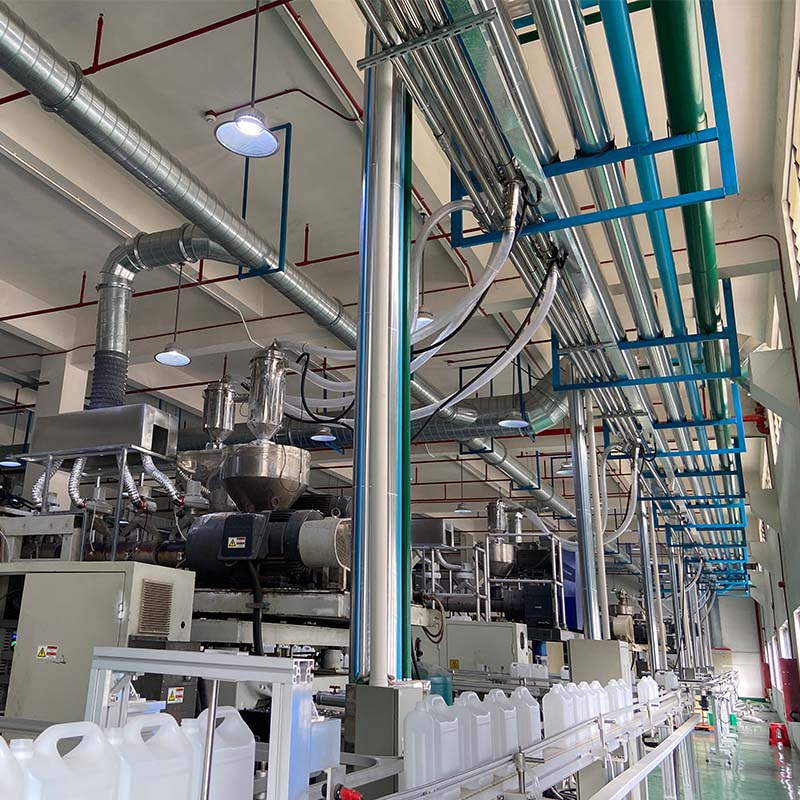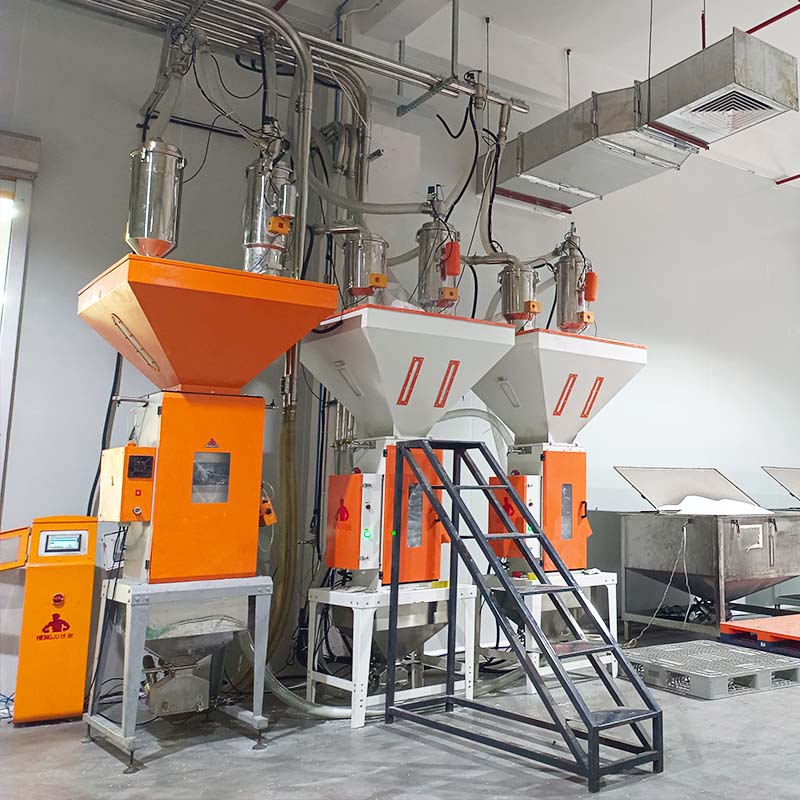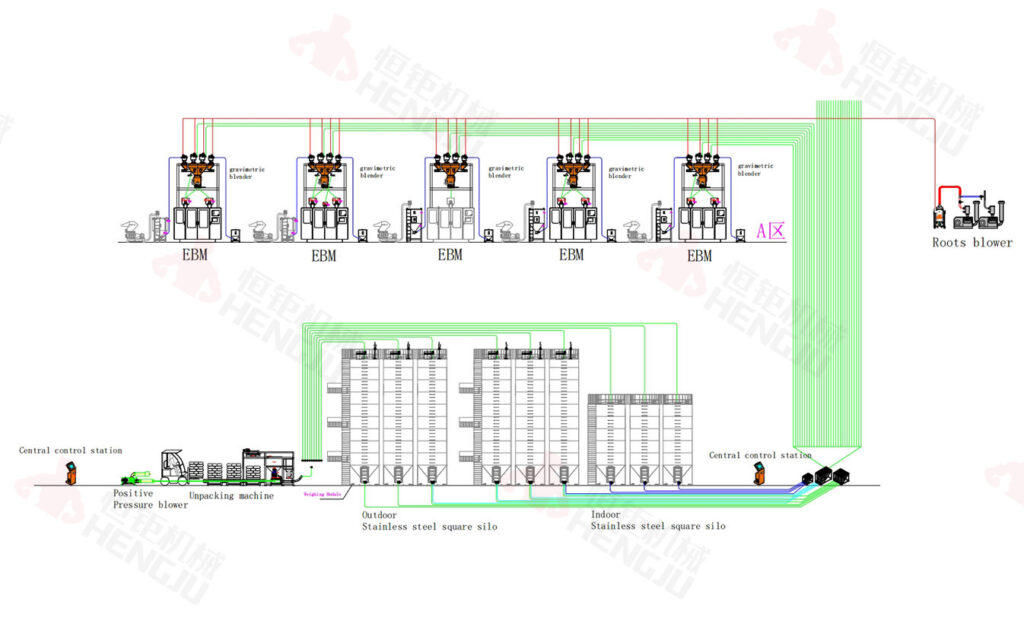1. Introduction
Blow molding factories often face challenges like inconsistent material supply, high labor costs, and dust contamination. A central feeding system for blow molding solves these problems by delivering raw materials directly from storage silos to each blow molding machine automatically.
2. How a Central Feeding System Works in Blow Molding
- Material Storage – Pellets are stored in large silos or bins.
- Vacuum Conveying – Central pumps transport material through sealed pipelines.
- Distribution Manifold – Directs the right material to each blow molding machine.
- Drying & Mixing – Integrated dryers and mixers prepare materials before molding.



3. Benefits for Blow Molding Production
- Continuous Operation – No manual material loading, reducing downtime.
- Material Consistency – Prevents contamination and moisture absorption.
- Lower Labor Costs – Fewer operators needed for material handling.
- Clean Production Environment – No pellet spillage or dust pollution.
- Energy Savings – Centralized drying is more efficient than individual dryers.
4. Key Design Considerations
- Production Scale – Number of machines and daily output.
- Material Type – PET, HDPE, PP, etc.
- Distance & Layout – Pipe length, bends, and floor plan.
- Automation Level – Whether to include gravimetric dosing or drying.

5. Cost Factors
- Initial Investment – Includes vacuum pumps, pipes, receivers, and control system.
- Operating Cost – Energy consumption and filter maintenance.
- ROI Timeline – Many blow molding factories recover costs within 12–18 months.
6. Conclusion
For blow molding manufacturers aiming to improve efficiency and product quality, investing in a central feeding system is a cost-effective solution. The right system reduces waste, saves labor, and ensures consistent material flow — all critical for staying competitive in today’s market.
Ready to upgrade your material feeding system?
✉Request a Free Layout Plan
📋 Download Technical Brochure
Contact now
Email: Jenny@gdhengju.com




